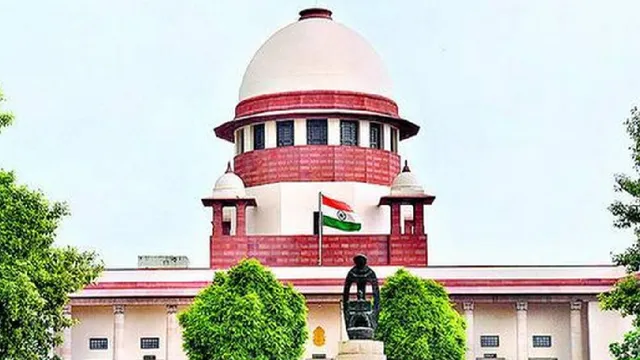- By Raju Kumar
- Sat, 01 Nov 2025 03:44 PM (IST)
- Source:JND
SC On POCSO Case: In a rare verdict, the Supreme Court exercised its plenary powers under Article 142 of the Constitution to annul POCSO proceedings against a man, asserting that the verdict is in the unique circumstances and should not be treated as a precedent for any other case. It was a rare case in which a man was undergoing POCSO proceedings for entering into a sexual relationship with a girl, then a minor, and later marrying her. The court said, "The crime was not the result of lust but love".
"The appellant and the victim are not only legally married, they are also in their family way. While considering the offence committed by the appellant punishable under the POCSO (Protection of Children from Sexual Offences) Act, we have discerned that the crime was not the result of lust but love," the court said.
The wife (victim) has stated that she was married to the man (convict), and they have a one-year-old boy and are now leading a happy life with the father of the girl, also wishing that the criminal proceedings against her daughter's husband be brought to an end.
ALSO READ: GST Collections Rise 4.6% To Rs 1.96 Lakh Crore In October, Festive Purchasing Drives Growth
A bench of Justices Dipankar Datta and AG Masih said, "We are conscious of the fact that a crime is not merely a wrong against an individual but against society as a whole. When an offence is committed, it wounds the collective conscience of the society and therefore the society, acting through its elected lawmakers, determines what would be the punishment for such an offence and how an offender should be dealt with, to deter its recurrence."
Here Are The Key Highlight Of The SC's Observation
- The SC, October 28, said that criminal law is a manifestation of the sovereign will of society but the administration of such law is not divorced from practical realities.
- The court needs to balance the competing interests of justice, deterrence, and rehabilitation, the bench said.
- The founding fathers of the Constitution conferred this court with the extraordinary power to do "complete justice" in proper cases and this constitutional power stands apart from all other powers and is intended to avoid situations of injustice being caused by the rigid application of law, it asserted.
- "Per the law made by the legislature, the appellant having been found guilty of a heinous offence, the proceedings in the present case on the basis of a compromise between the appellant and his wife cannot be quashed. But ignoring the cry of the appellant's wife for compassion and empathy will not, in our opinion, serve the ends of justice," it said.
- The top court said the continuation of criminal proceedings and the appellant's incarceration would only disrupt this familial unit and cause irreparable harm to the victim, the infant child, and the fabric of society itself.
- Warning the convict of the consequences, the top court imposed a condition on the man for the relief and said he will not desert his wife and child and also maintain them for the rest of their life with dignity.
(With PTI inputs)

